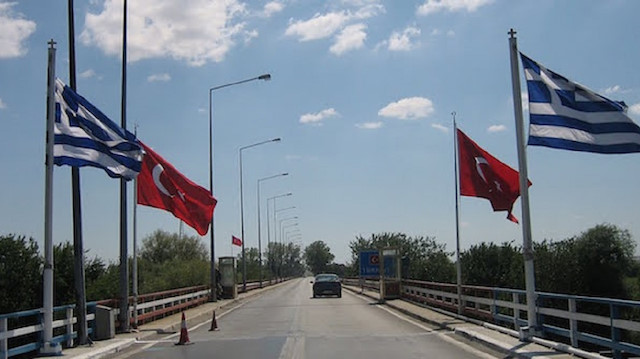
A cursory look at the issues that dominate the press in either Greece or Turkey, and I assume, in any other part of the neighborhood, will reflect tensions either domestically or with neighboring countries. These tensions evidently exist and need to be tackled, discussed, and resolved. The common neighborhood is particularly relevant given that it is on the margins of Europe whereby the countries encompassing it, as Greece and Turkey both feel that they belong both to Europe and to its southern neighborhood. In other words, both feel that they have one foot in and one foot out of Europe. As a result, tensions or differences between the two countries take on an amplified significance since many of these transcend the bilateral context.
The hydrocarbon reserves in the Eastern Mediterranean, the refugee flows from the south to the north (Europe), the continued non-resolution of the Cyprus issue, and the uncertainties of the changing international security environment, especially given the ambiguities regarding the U.S. perspective on the newly emerging international security architecture, are the main challenges that the South and other regions in close proximity to and in relationship with the south need to deal with.
The consensus has been that these challenges could be dealt within the values and norms professed by both the European Union and NATO. Yet as the EU and NATO find themselves increasingly challenged from within as many of their member states have raised doubts about the viability and the directions of these two organizations, the task of the securitization and defense of their members has become arduous as nationalism has come to the forefront.
One could add to this re-emergence of nationalism, the issues of identity politics where 19th century mentalities, which focus more on the past rather than the present and the future, make their presence felt. Challenges prevail everywhere to the extent that Yuval Noah Yarari, the new poster child of global intellectualism, suggests in his most recent book, “21 Lessons for the 21st Century,” that the end of history has been postponed. Harari’s reference is to Francis Fukuyama’s assessment in 1992 that the end of the Cold War implied that only one ideology, democracy, had prevailed. Since then, for a number of years, the number of democracies around the globe increased and there was a growing consensus that the liberal international order had staying power.
Yet, over the last few years, this trend has come to an end while the security challenges mount with no evident solutions other than maintaining the values and norms in place, albeit revamped for them to be able to achieve a new consensus among likeminded states in these times of global reconfiguration.
Yet two thoughts come to mind as I consider the state of our neighborhood. The first has to do with the findings of the Sustainable Governance Index of the Bertelsmann Foundation, which assessed the state of governance and democracy in 41 EU and OECD member states, including Turkey, Greece, Cyprus, Romania, and Bulgaria. All of these aforementioned neighboring countries scored below par in terms of governance, democracy, and policy performance. This implies that they are not necessarily institutionally well-shielded or protected to meet the challenges of their common neighborhood.
The second thought has to do with the relativity of all the aforementioned trials. In this news cycle of constant crisis, we tend to lose the big picture about the state of our planet. According to the report of the Intergovernmental Panel on Climate Change released in mid-October, we have 12 years to save the planet as the report states that human induced warming has already reached about 1 degree Celsius above pre-industrial levels. If the current warming rate continues, the world is expected to reach human induced global warming of 1.5 degrees Celsius around 2040. The report recommends collective action by both states and industry in order to avoid an even greater acceleration of global warming. Yet, this report has received relatively scant notice in our part as the world.
This paradigm of conflict and crisis needs to change if our countries are to overcome their differences. For them and their citizens to feel secure, their governance needs to be improved as does their focus on the state of the planet and meeting the targets on slowing global warming. Should we continue to ignore governance and climactic concerns, frictions and tensions in our part of the world will only continue to grow, to the detriment of all.














